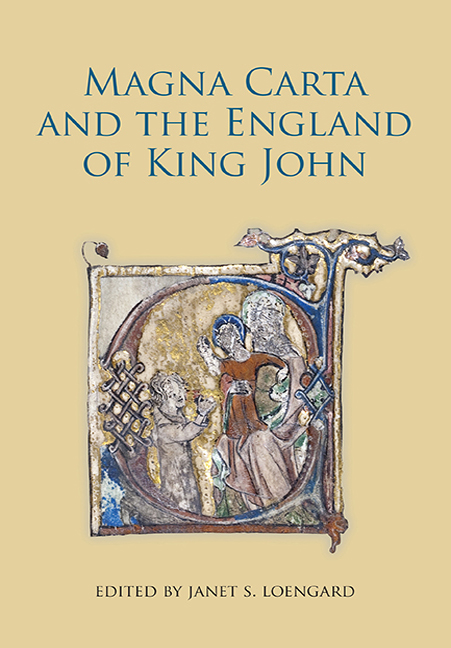Book contents
- Frontmatter
- Contents
- List of Contributors
- List of Abbreviations
- Introduction
- England in 1215: An Authoritarian Angevin Dynasty Facing Multiple Threats
- The Anonymous of Béthune, King John and Magna Carta
- Baronial Paranoia in King John's Reign
- The Forest Eyre in the Reign of King John
- The Managerial Revolution in the English Church
- Magna Carta, the ius commune, and English Common Law
- Justice without Judgment: Criminal Prosecution before Magna Carta
- What Did Magna Carta Mean to Widows?
- The English Economy in the Age of Magna Carta
- The Complaint of King John against William de Briouze (c. September 1210)
- Index
The Forest Eyre in the Reign of King John
Published online by Cambridge University Press: 28 April 2017
- Frontmatter
- Contents
- List of Contributors
- List of Abbreviations
- Introduction
- England in 1215: An Authoritarian Angevin Dynasty Facing Multiple Threats
- The Anonymous of Béthune, King John and Magna Carta
- Baronial Paranoia in King John's Reign
- The Forest Eyre in the Reign of King John
- The Managerial Revolution in the English Church
- Magna Carta, the ius commune, and English Common Law
- Justice without Judgment: Criminal Prosecution before Magna Carta
- What Did Magna Carta Mean to Widows?
- The English Economy in the Age of Magna Carta
- The Complaint of King John against William de Briouze (c. September 1210)
- Index
Summary
After some at least tentative beginnings in the reign of Henry I, intermittent judicial visitations of counties where there were royal forests, to hold their forest pleas, became a regular feature of forest justice in England from the time of the appointment of Alan de Neville as the Henry II's chief forester in 1166. These ‘forest eyres’ began at about the same time as eyres for common pleas, for which the name ‘general eyre’ was later coined. The latter dealt with both civil and crown pleas; and the crown pleas, the investigation of which was based on the terms of the Assize of Clarendon of that year, closely paralleled the forest eyre. In effect the forest eyre dealt with an extraordinary category of crown pleas, protecting the king's deer and their habitat rather than the lives and property of men and women. Instead of presentments of alleged offences made by a jury of prominent local men to the common pleas eyre, forest offences were brought to the justices in eyre of the forest by the local forest officials who were responsible for recording them, to be determined by the justices. The equivalent of the Assize of Clarendon in forest jurisprudence was the so-called ‘Prima Assisa’, undated but quite probably also promulgated at about the same time as a preliminary to the judicial activities of Alan de Neville in the royal forests. Just as the Assize of Clarendon was superseded by the Assize of Northampton in 1176, so the Prima Assisa was replaced by the Assize of Woodstock in 1184. The Assize of Woodstock and the appointment of Geoffrey fitz Peter as forest justice in 1184 brought in a new forest regime, and three series of forest eyres in many counties in 1185, 1187 and 1189. Although fitz Peter continued in office until 1198, there were no forest eyres for nearly a decade because of King Richard's long absence from England on crusade and then in captivity, and his subsequent concentration on Continental affairs, leaving government and justice in England largely in the hands of his ministers. This inactivity came to an end in 1198, with the beginning of a new period of judicial activity in the royal forests which ran on into John's reign.
- Type
- Chapter
- Information
- Magna Carta and the England of King John , pp. 63 - 82Publisher: Boydell & BrewerPrint publication year: 2010



